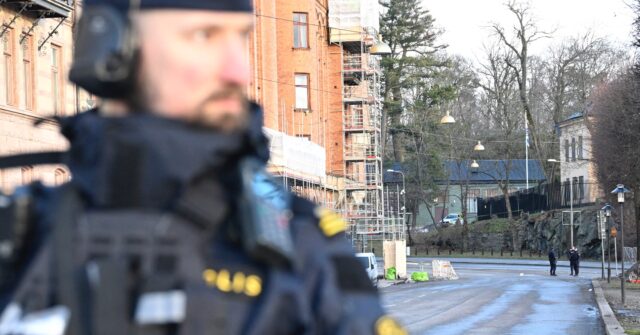Reports have emerged indicating that Iranian-backed networks are recruiting young individuals, particularly child mercenaries from immigrant gang communities in European countries like Sweden and Norway, to target Israeli interests. This troubling trend involves disturbing incidents throughout the year, including an attempted assault on the Israeli embassy in Stockholm perpetrated by a 15-year-old, alongside two attacks involving youths aged 13 and 16 at an Israeli defense firm, Elbit Systems, in Gothenburg. These acts of aggression appear to be orchestrated by operatives loyal to the Iranian regime, showcasing a strategic exploitation of vulnerable youth for political and violent objectives.
Researcher Petter Nesser from the Norwegian Defence Research Establishment (FFI) noted that these Iranian-affiliated agents utilize social media platforms, including Telegram, TikTok, and WhatsApp, as recruitment tools to mobilize individuals for coordinated assaults on Israeli targets. The financial incentives for engagement in such activities range dramatically; hiring individuals for a killing might cost around €1,500, while more basic attacks, like petrol bombings, can be conducted for as little as €120. Nesser highlights the potential for amateur execution in cost-effective operations, pointing out that many of these child mercenaries may not fully comprehend the extent of their involvement, often unaware they work for a foreign agenda fueled by animosity towards Israel.
This reliance on children for carrying out violent acts aligns with a broader trend in Nordic countries where gangs often exploit minors from migrant backgrounds for criminal enterprise. Legislative loopholes allow youths under 15 years old in Sweden and Norway to evade prison sentences, thereby making them attractive candidates for recruitment by gangs. In light of this situation, both countries are contemplating amendments to existing laws to better protect minors from exploitation while addressing the underlying gang violence plaguing their societies. Concurrently, Denmark faces its own challenges, with reports suggesting that gangs in cities like Copenhagen have sought to recruit “child soldiers” from Sweden, perpetuating cycles of violence across national borders.
Historically known as one of Europe’s safest countries, Sweden has witnessed an alarming transformation due to mass migration, where immigrant populations now account for one in five residents. The demographics and social conditions have paved the way for an escalation in gang-related crime, with substantial involvement from marginalized immigrant communities. The Swedish Police report that approximately 14,000 individuals are active gang members within the nation, alongside an additional 48,000 connected to various criminal networks. This acknowledgment of rampant gang activity reflects the challenges faced in maintaining public safety and social order amidst significant demographic change.
In response to the increasingly precarious environment and the evident failures of open immigration policies, Swedish citizens voted for a centrist-right coalition government in 2022 that pledged to curtail immigration. This political shift points to rising discontent regarding past policies and a desire for more stringent measures to enhance national safety. Additionally, socioeconomic factors are influencing demographic trends, with projections indicating that more people are expected to emigrate from Sweden than immigrate, particularly noting departures from Iraqi, Syrian, and Somali communities. Such trends seem to suggest a recalibration of public sentiment regarding immigration and integration in the face of rising gang violence and insecurity.
In summary, the troubling coordination between Iranian-backed groups and local gangs utilizing child mercenaries to pursue violent agendas against Israeli targets marks a significant shift in criminal and geopolitical dynamics in Sweden and Norway. This development raises critical questions about the role of state and community responses to youth exploitation in criminal enterprises, the effectiveness of existing laws, and the profound implications of immigration patterns on public safety. As Nordic nations grapple with these challenges, the complexities of international influence, local vulnerabilities, and community resilience will be essential factors in shaping future policy and societal cohesion.

